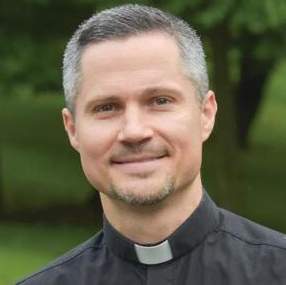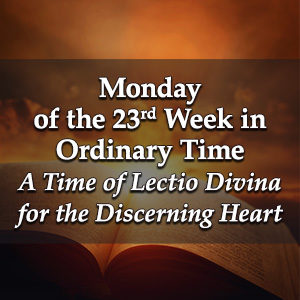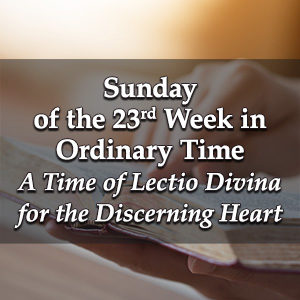Podcast: Play in new window | Download (Duration: 29:17 — 20.2MB) | Embed
Subscribe: Apple Podcasts | Spotify | Amazon Music | Android | Pandora | iHeartRadio | JioSaavn | Podchaser | Gaana | Podcast Index | Email | TuneIn | Deezer | Anghami | RSS | More

Fr. Aaron Wessman – The Church’s Mission in a Polarized World, Part 1 on Inside the Pages with Kris McGregor
In Part 1 of a 2-part conversation, Fr. Aaron Wessman and Kris McGregor discuss Fr. Aaron’s book ‘The Church’s Mission in a Polarized World‘. Fr. Aaron explains how the project grew from a personal journey after returning to the U.S. from studying theology abroad. Upon his return, he noticed a worsening division in American society and within the Church, which also affected him personally. This led him to research the issue and eventually write the book, which examines how polarization impacts Christians.
Christians, particularly in the U.S., are influenced by polarized political and social dynamics. Fr. Aaron describes this “hurricane of polarization” as something that often affects how people engage with others, making it harder to follow Christ’s call to love and dialogue. With this book, he calls for Christians to step back from political hostility and gain perspective through faith, using Christ’s example of engaging even those considered enemies.
Political partisanship and the language of culture wars have entered the Church, using war-like metaphors that can distance believers from the Gospel’s true message of love and reconciliation. Fr. Aaron highlights the importance of choosing words carefully, suggesting that Christians focus on prudence and listening, aiming to understand rather than attack.
He invites Christians to prioritize their identity in Christ over political affiliations. Fr. Aaron encourages humility, dialogue, and discernment as ways to navigate an increasingly polarized world, drawing connections to historical figures like St. Francis de Sales, who responded to similar challenges with wisdom and charity.
 You can find the book here.
You can find the book here.
Discerning Hearts Reflection Questions
- Personal Experience of Polarization: How have I seen polarization affect my own heart and interactions with others in daily life?
- Impact of Political Identity on Christian Life: Am I allowing my political identity to overshadow my identity as a disciple of Christ?
- Christ’s Call to Engage Others: In what ways can I better approach others with love and understanding, especially those I disagree with?
- Prudence in Engagement: How can I exercise prudence in choosing when and how to engage in conversations with others, particularly in polarized environments?
- Influence of Media and Social Media: Am I aware of how my media consumption, especially on social media, shapes my perspective and engagement with others?
- Words and Metaphors in Communication: How can I be more mindful of the words and metaphors I use in discussions, ensuring they reflect the Gospel message of reconciliation?
- Rooting Identity in Christ: What steps can I take to deepen my relationship with Christ so that my actions reflect His teachings in a polarized world?
From the book description:
“Christians and other people of good will are longing for a response that can lead the way out of the divisiveness and vitriol of our times. I wrote this book to provide some assistance to readers to discern a way out of the toxicity in which we live, and to stimulate courage and hope, so that all people can see the age in which we live more clearly and respond with the grace necessary to follow more fully the call God has spoken—a missionary call to deepen Christ’s incarnational movement in our world.”
-Fr. Robert Aaron Wessman
About the Author
Fr. Robert Aaron Wessman, a priest of the Roman Catholic Church, is the 1 st -Vice- President (Vicar General) and Director of Formation for the Glenmary Home Missioners. He has a PhD from the Catholic University of Louvain (Belgium) in Systematic Theology (2019). He serves as an at-large board member for the Conference of Major Superiors of Men Religious (CMSM) and is a guest lecturer at St. Meinrad Seminary and School of Theology. The religious order he belongs to, Glenmary, is a missionary society of apostolic life of the Catholic Church that conducts mission in rural, poor, and non-Catholic areas of the United States, primarily in the southeast and Appalachia. Visit glenmary.org for more information.









 Monday of the Twenty-Third Week in Ordinary Time – A Time of Lectio Divina for the Discerning Heart Podcast
Monday of the Twenty-Third Week in Ordinary Time – A Time of Lectio Divina for the Discerning Heart Podcast
 Sunday of the Twenty-Third Week in Ordinary Time – A Time of Lectio Divina for the Discerning Heart Podcast
Sunday of the Twenty-Third Week in Ordinary Time – A Time of Lectio Divina for the Discerning Heart Podcast



